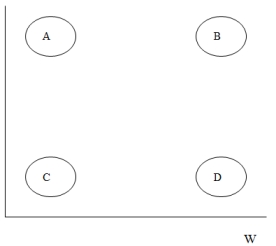Exam 9: Varieties of Dictatorship
Exam 1: What Is Science48 Questions
Exam 2: What Is Politics27 Questions
Exam 3: The Origins of the Modern State62 Questions
Exam 4: Democracy and Dictatorship: Conceptualization and Measurement18 Questions
Exam 5: The Economic Determinants of Democracy and Dictatorship44 Questions
Exam 6: The Cultural Determinants of Democracy and Dictatorship38 Questions
Exam 7: Democratic Transitions55 Questions
Exam 8: Democracy or Dictatorship: Does It Make a Difference7 Questions
Exam 9: Varieties of Dictatorship52 Questions
Exam 10: Problems With Group Decision Making28 Questions
Exam 11: Parliamentary, Presidential, and Semi-Presidential Democracies61 Questions
Exam 12: Elections and Electoral Systems52 Questions
Exam 13: Social Cleavages and Party Systems41 Questions
Exam 14: Institutional Veto Players34 Questions
Exam 15: Consequences of Democratic Institutions32 Questions
Select questions type
The dictatorship type that is most likely to be followed by competitive elections is:
Free
(Multiple Choice)
4.8/5  (48)
(48)
Correct Answer:
A
According to BDM2S2, what is the winning coalition?
Free
(Multiple Choice)
4.7/5  (31)
(31)
Correct Answer:
C
Dictatorships that do not rely on either the support of the military or a ruling family or kin network are called:
Free
(Multiple Choice)
4.8/5  (37)
(37)
Correct Answer:
C
The textbook distinguishes between the types of dictatorships based on:
(Multiple Choice)
4.7/5  (31)
(31)
When will leaders have an incentive to provide public goods?
(Multiple Choice)
4.9/5  (33)
(33)
Loyalty toward the incumbent leader declines as the winning coalition grows relative to the selectorate (that is, as W/S gets larger).
(True/False)
4.8/5  (41)
(41)
The military in personalistic dictatorships is often deliberately kept weak so as to not act as a power base for a potential rival:
(True/False)
4.8/5  (35)
(35)
According to a BBC article, President Robert Mugabe of Zimbabwe had opposition leaders arrested after police broke up a banned political rally on March 11, 2007 ( http://news.bbc.co.uk/2/hi/africa/6457329.stm). The opposition leader Morgan Tsvangirai appeared in court two days later with "a badly bruised face and stitches in a head wound." The U.S. government, among others, was considering sanctions in response to Mugabe's actions. According to the British Foreign Office minister, Lord David Triesman, "Zimbabwe's government had committed 'actions . . . bordering on crimes against humanity.' Lord Triesman pointed to the government's suppression of Mr. Tsvangirai's Movement for Democratic Change and the eviction of hundreds of thousands of people from urban areas in 2005." The article also notes, "More than 80% of Zimbabweans are living in poverty, with chronic unemployment and inflation running at more than 1,700%-the highest in the world." Which of the following systems would provide incentives for the type of behavior described in this article?
(Multiple Choice)
5.0/5  (35)
(35)
Dominant-party dictatorships rely on the following to stay in power:
(Multiple Choice)
4.8/5  (37)
(37)
If members of a winning coalition get "paid" with things like national security, rule of law, primary and secondary education, then this is an example of the government providing:
(Multiple Choice)
4.8/5  (40)
(40)
According to the selectorate theory, when are the members of the winning coalition likely to have the highest loyalty to their leader?
(Multiple Choice)
4.9/5  (40)
(40)
Dominant-party and personalistic dictatorships are both subcategories of the following type of dictatorship:
(Multiple Choice)
4.8/5  (39)
(39)
The three basic types of authoritarian regime outlined in the textbook include all of the following EXCEPT:
(Multiple Choice)
4.8/5  (41)
(41)
The difference between hegemonic electoral authoritarian regimes and competitive authoritarian regimes is that:
(Multiple Choice)
4.9/5  (40)
(40)
According to some recent expert surveys, the experts estimate that North Korea has a winning coalition of 73 people! (This is down from several hundred a few decades ago.) This means that the W/S ratio is very, very small compared with almost any other country. Based on the selectorate theory, what kind of government performance should we expect to see in North Korea?
(Multiple Choice)
4.8/5  (36)
(36)
Consider Figure 1, below, and answer the following questions.
Figure 1
 -Looking at Figure 1, where would you place military dictatorships (juntas)?
-Looking at Figure 1, where would you place military dictatorships (juntas)?
(Multiple Choice)
4.8/5  (40)
(40)
The Communist Party in the former Soviet Union is an excellent example of this type of regime:
(Multiple Choice)
4.9/5  (45)
(45)
Showing 1 - 20 of 52
Filters
- Essay(0)
- Multiple Choice(0)
- Short Answer(0)
- True False(0)
- Matching(0)